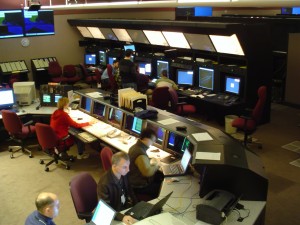In keeping with Betteridge’s Law: no.
My news feed is full of headlines like:
- Damage report reveals LA methane leak is one of the worst disaster in US history
- LA’s Methane Gas Leak Was One of the Biggest Environmental Disasters in US History
- California gas leak was ‘worst climate disaster in US history‘
These are not from top-tier news sources, but they’re getting attention all the same. Which is too bad, because they’re all false by any reasonable  measure. Worse, all of the above seem to deliberately misquote from a new paper published in Science. The paper does say, however:
measure. Worse, all of the above seem to deliberately misquote from a new paper published in Science. The paper does say, however:
This CH4 release is the second-largest of its kind recorded in the U.S., exceeded only by the 6 billion SCF of natural gas released in the collapse of an underground storage facility in Moss Bluff, TX in 2004, and greatly surpassing the 0.1 billion SCF of natural gas leaked from an underground storage facility near Hutchinson, KS in 2001 (25). Aliso Canyon will have by far the largest climate impact, however, as an explosion and subsequent fire during the Moss Bluff release combusted most of the leaked CH4, immediately forming CO2.
Make no doubt about it, it is a big release of methane. Equal, to the annual GHG output of 500,000 automobiles for a year.
But does that make is one of the largest environmental disasters in US history? I argue no, for a couple of reasons.
Zeroth: because of real, actual environmental disasters, some of which I’ll list below.
First: without the context of the global, continuous release of CO2, this would not affect the climate measurably. That is, by itself, it’s not a big deal.
Second: and related, there are more than 250 million cars in the US, so this is 0.2% of the GHG released by automobiles in the US annually. Maybe the automobile is the ongoing environmental disaster? (Here’s some context: The US is 15.6% of global GHG emissions, transport is 27% of that, and 35% of that is from passenger cars. By my calculations, that makes this incident about 0.0003% of global GHG emissions.)
Lets get back to some real environmental disasters? You know, like the kind that kill people, animals, and lay waste to the land and sea? Here are a list of just some pretty big man-made environmental disasters in the US:
- Leaded gasoline
- Exxon Valdez
- Gulf Oil Spill
- 1948 Donora Smog
- Rivers catching fire
- Dust bowl of the 1930’s
- Love Canal
- Libby Montana asbestos contamination
- Tennessee coal ash spill
- Pitcher, OK, mine tailing ghost town
- Texas City, Texas. Town blown up
- Gulf of Mexico Dead Zone
Of course, opening up the competition to international disasters, including US-created ones, really expands the list, but you get the picture.
All this said, it’s really too bad this happened, and it will set California back on its climate goals. I was saddened to see that SoCal Gas could not cap this well quickly, or at least figure out a way to safely flare the leaking gas.
But it’s not the greatest US environmental disaster of all time. Not close.

